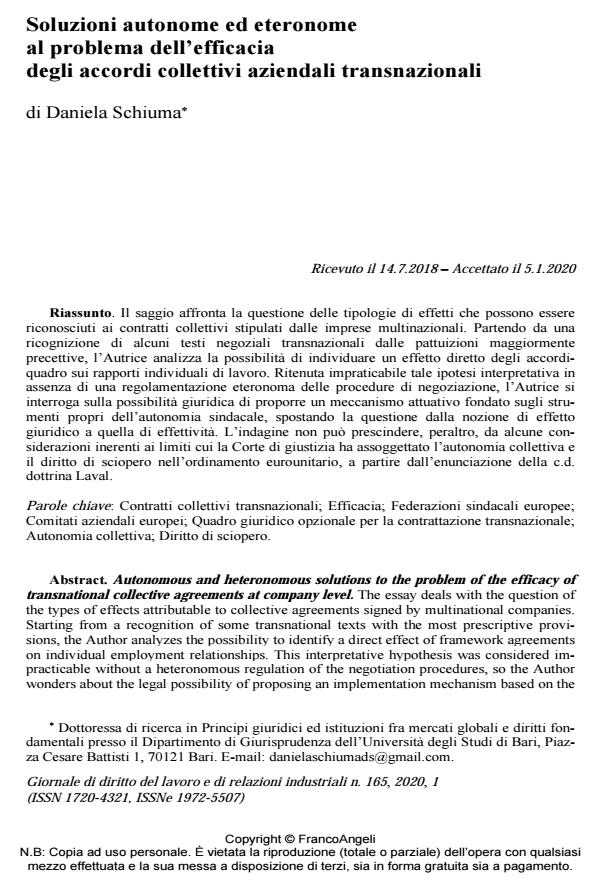Autonomous and heteronomous solutions to the problem of the efficacy of transnational collective agreements at company level.
Journal title GIORNALE DI DIRITTO DEL LAVORO E DI RELAZIONI INDUSTRIALI
Author/s Daniela Schiuma
Publishing Year 2020 Issue 2020/165
Language Italian Pages 29 P. 73-101 File size 328 KB
DOI 10.3280/GDL2020-165004
DOI is like a bar code for intellectual property: to have more infomation
click here
Below, you can see the article first page
If you want to buy this article in PDF format, you can do it, following the instructions to buy download credits

FrancoAngeli is member of Publishers International Linking Association, Inc (PILA), a not-for-profit association which run the CrossRef service enabling links to and from online scholarly content.
The essay deals with the question of the types of effects attributable to collective agreements signed by multinational companies. Starting from a recognition of some transnational texts with the most prescriptive provisions, the Author analyzes the possibility to identify a direct effect of framework agreements on individual employment relationships. This interpretative hypothesis was considered impracticable without a heteronomous regulation of the negotiation procedures, so the Author wonders about the legal possibility of proposing an implementation mechanism based on the tools of union autonomy, shifting the issue from the notion of legal effect to that of effectiveness. The question cannot ignore some considerations related to limits to which the Court of Justice of the European Union has subjected collective autonomy and the right to strike at European level, starting from the statement of the so-called Laval doctrine.
Keywords: Transnational collective agreements; Efficacy; European Trade Union Federations; European Work Councils; Optional legal framework for Transnational Collective Bargaining; Collective Autonomy; Right to strike.
Daniela Schiuma, Soluzioni autonome ed eteronome al problema dell’efficacia degli accordi collettivi aziendali transnazionali in "GIORNALE DI DIRITTO DEL LAVORO E DI RELAZIONI INDUSTRIALI " 165/2020, pp 73-101, DOI: 10.3280/GDL2020-165004